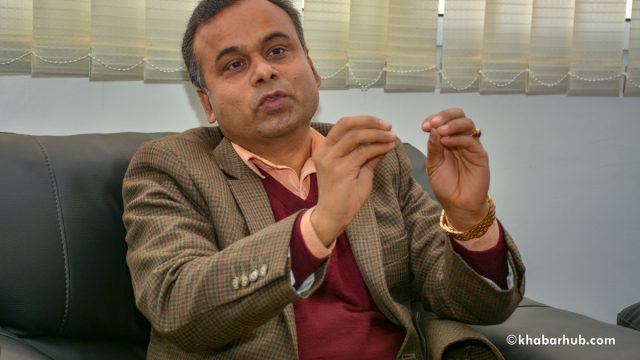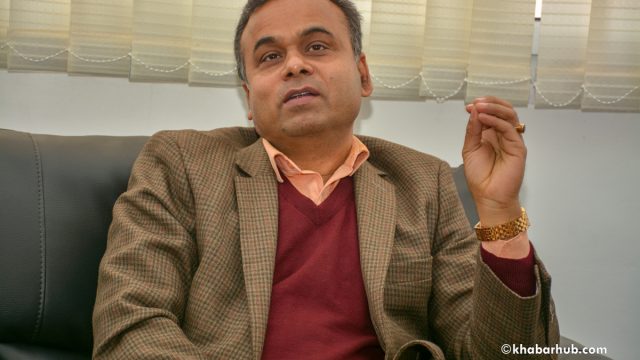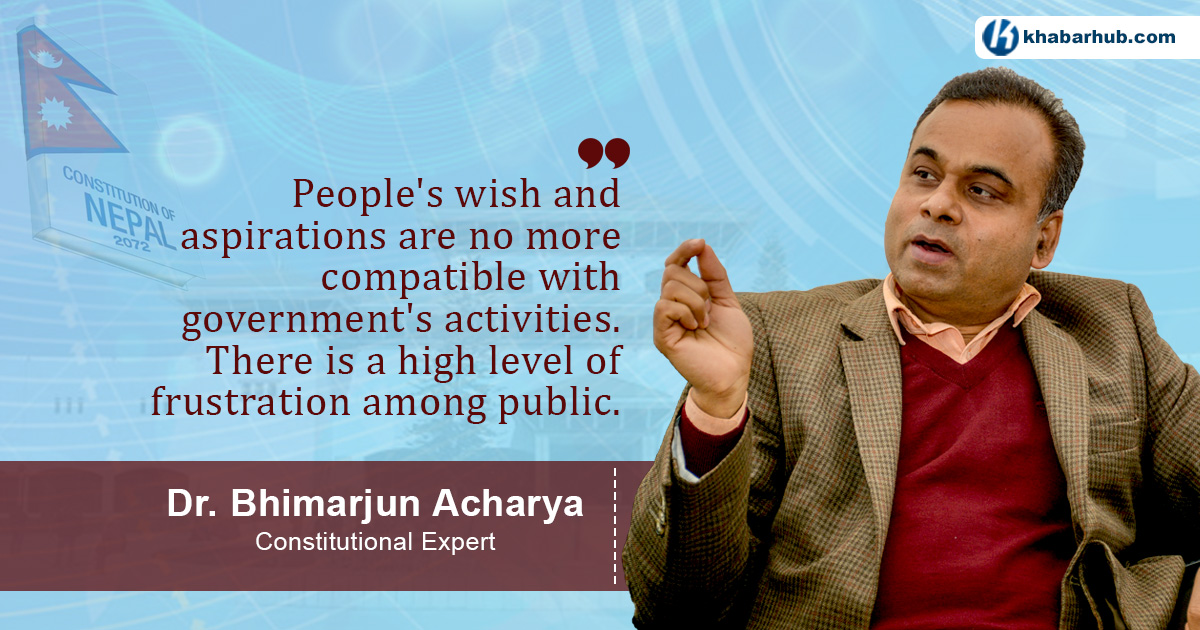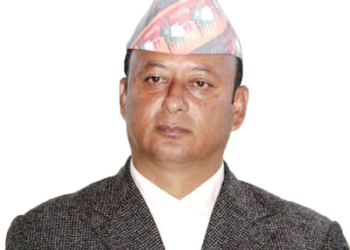Dr. Bhamarjun Acharya is a noted constitutional scholar of Nepal. He has been doing research on the constitutional development of Nepal besides practicing at the country’s Supreme Court. He has written a number of books and essays on legal issues. Khabarhub caught up with Dr. Acharya. Some excerpts:
How do you assess the implementation aspect of Nepal’s new constitution promulgated in 2015?
The current constitution is the seventh experience in Nepal’s constitutional history. When we talk about the international practice of writing a constitution, there are mainly two procedures: a constitution is either written by a team of experts or it is written by the representatives of people that is through a constituent assembly. First time in Nepal, the latter has been experimented.
The current constitution can be assessed on various grounds such as the cost involved in its promulgation, whether or not the promises made by it have been achieved, the contents covered by it, and its performance.

Interestingly, this is probably the most expensive constitution as of yet that incurred around 600 billion during its writing process. The question is whether its output is in proportion to the cost involved in its promulgation.
The biggest weakness of the current constitution lies in its failure to delivery. Unfortunately, it has utterly failed to deliver promises made to the people.
Do you think that the country’s constitution has reflected the spirit and aspiration of the people?
In fact, yes. A constitution should reflect the spirit and aspirations of the people. Even though this constitution has several good aspects, it has failed to incorporate certain demands of the people. For example, secularism and federalism were not people’s issues.
Concerning its efficiency, completion of election process at three levels and enactment of many laws as demanded by the constitution are some positive aspects. However, it has lagged behind in terms of meeting people’s aspiration and the promises mentioned in its preamble.
What are your predictions for the future given the present scenario involving the constitution and the country?
A constitution is not written just for the present generation. It is meant for many generations to come. However, given the dismal output of the constitution at present, I see its future challenging.
The constitution has the provision of constitutional bodies besides government bodies. How do you find their roles and performances?
A state with a functioning democracy has important social, legal and political institutions. A constitution has the provision of constitution bodies whose function is to make the government accountable to the people. However, if we look at judiciary, it is not devoid of controversy. The Commission for the Investigation of Abuse of Authority (CIAA) also got embroiled in controversy. The performance of other constitutional bodies is also not satisfactory.
On the political front, people are dissatisfied with the government. Presence of the opposition is not felt. As for the civil institution, there are some media that are acting responsibly.
People’s wish and aspirations are no more compatible with the government’s activities. There is a high level of frustration among public.
The biggest weakness of the current constitution lies in its failure to delivery. Unfortunately, it has utterly failed to deliver promises made to the people.
The current majority government came to the power with the slogan of nationalism. Given the government’s activities, how do you see the future of the system the country has adopted?
Democracy undoubtedly has its future. But there definitely lies a serious question on the fate of the government. It would be a failure to test people’s patience. People waited patiently for the promulgation of the new constitution for more than eight years.
The government then said that it needed time to hold elections as demanded by the new constitution. That got completed. The government told people that it needed some time to formulate laws as per the spirit of the constitution to grant rights to the people. And that has been completed as well.

Now there are no excuses from the government. Their only expectation is the delivery on part of the government. If you look at the delivery aspect that is almost nil. The inflation rate is high, the nation is submerged in debt. If this situation persist, people will go against the current mode of governance. People’s wish and aspirations are no more compatible with the government’s activities. There is a high level of frustration among public.
What would be the best way out?
The government and its officials should be honest and accountable towards the people and the constitution. The government should translate its promises made to the people and also the promises made by the constitution into reality. You should also think of reforming the structure that the constitution cannot uphold. My indication is on the federal set up.
What do you mean by reforms in the federal structure?
The past three years have shown that we do not need the provincial governments when every administrative act is performed by the local bodies. As for addressing the issue of ethnic minority, naming a province after an ethnic community is not a solution. However, we should not hesitate in granting them with rights and privileges.









Comment